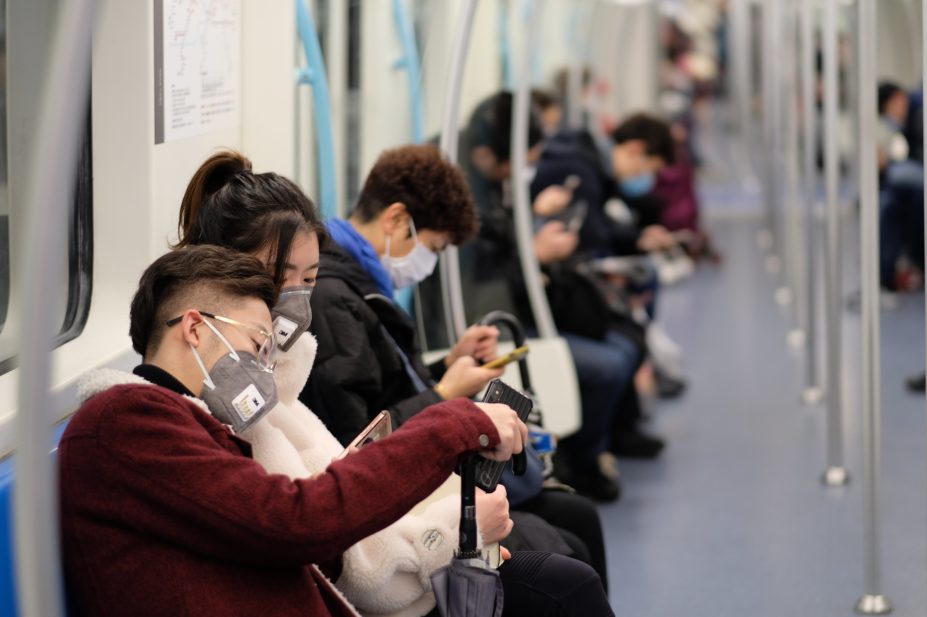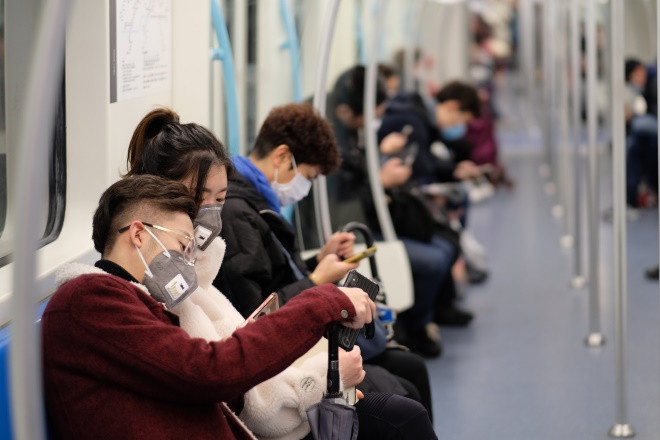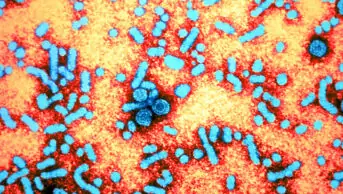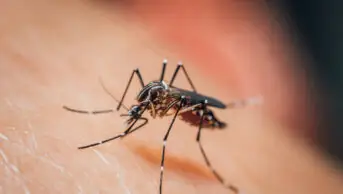
Shutterstock.com
Open access article
The Royal Pharmaceutical Society has made this article free to access in order to help healthcare professionals stay informed about an issue of national importance.
To learn more about coronavirus, please visit: https://www.rpharms.com/resources/pharmacy-guides/wuhan-novel-coronavirus

Source: Shutterstock.com
Chris Whitty, chief medical officer for England, says that any cases of novel coronavirus in the UK are most likely to be seen in people who have recently visited Wuhan
Public Health England (PHE) says patients concerned about coronavirus symptoms should not go to their community pharmacy, but instead contact NHS 111 or call their GP.
Chris Whitty, chief medical officer (CMO) for England, published advice on how to manage suspected cases of the Wuhan novel coronavirus via the Medicines and Healthcare products Regulatory Agency’s central alerting system (CAS) on 23 January 2020.
Produced in the form of a question algorithm for healthcare professionals, the alert also says patients presenting with symptoms of the virus should be isolated in a “side room with the door closed” while the local PHE health protection team are notified by phone.
A letter was issued with the CAS alert and sent to all clinical staff who might encounter patients with respiratory infections from overseas. It says the virus’s symptoms range from those of upper respiratory tract infection, with or without fever, to pneumonia; in severe cases, symptoms require hospitalisation and advanced respiratory support.
The letter, which was co-signed by Whitty; Sharon Peacock, national infection service director at PHE; and Stephen Powis, national medical director at NHS England, adds that any cases of novel coronavirus in the UK are most likely to be seen in people who have recently visited the city of Wuhan.
Patients with suspected novel coronavirus who have called their healthcare provider — such as a pharmacist or GP— should be advised to remain at home “while appropriate transport to hospital can be arranged”.
Although the alert requests that NHS England regional offices “cascade this alert to community pharmacy”, a spokesperson for PHE told The Pharmaceutical Journal that it advises patients concerned about symptoms to “phone NHS 111 or call their GP, rather than presenting at healthcare settings like a pharmacy”.
As of 23 January 2020, Whitty said that most reported cases to date were “at the mild end of the spectrum” and that there had been no confirmed cases in the UK. There had been three confirmed cases in France.
Then, in a joint statement, the Department of Health and Social Care and PHE said that 73 tests for the Wuhan coronavirus had taken place in the UK as of 27 January 2020, reiterating that all of which had been confirmed negative.
On 31 December 2019, the World Health Organization (WHO) was informed by the Chinese government of several cases of pneumonia cases recorded in Wuhan.
Then, on 12 January 2020, China shared genetic data with the WHO showing that the cases were the result of a novel coronavirus.
The WHO has since said that evidence strongly suggests the outbreak “is associated with exposures in one seafood market in Wuhan”, adding that “the market was closed on 1 January 2020”.
On 24 January 2020, the Chinese National Health Commission — the cabinet-level executive department responsible for health and sanitation in China — was reported to have confirmed 2,822 cases of novel coronavirus in mainland China, plus an additional 81 deaths resulting from the virus.
Other cases have also been reported in Thailand, Japan, Korea, Taiwan, the United States and Macao — all of which affected recent visitors to Wuhan.
Whitty’s letter, which is aimed at clinical staff encountering patients with respiratory infections who have arrived from overseas, signposts to PHE’s interim guidance for primary care, issued on 21 January 2020, and to wider PHE guidance on initial investigation and control of this infection.
Speaking at the House of Commons on 23 January 2020, the health and social care secretary, Matt Hancock, said that the CMO had “revised the risk to the UK population from ‘very low’ to ‘low’, and had concluded that while there is an increased likelihood that cases [of novel coronavirus] may arise in [the UK], we are well prepared and well equipped to deal with them”.
Hancock added that the UK “is one of the first countries to have developed a world-leading test for the new coronavirus” and had “well-established procedures for dealing with a potential outbreak such as this, be it of flu or a coronavirus”.


